- Home
- Stephanie Laurens
The Truth About Love
The Truth About Love Read online
STEPHANIE LAURENS
To Merilyn Bourke,
longtime friend, fellow author and romance critic extraordinaire
—with thanks and much love
SL
Contents
1. Mr. Cunningham, as I’ve already made clear, I have no…
2. With a lady approaching from either side, Cunningham dithered over…
3. He spent a restless night and was awake and out…
4. After luncheon, another quiet meal, Gerrard retreated to his studio…
5. The dinner party drew to a close; along with Millicent,…
6. I hope you won’t read too much into Matthew’s behavior.”…
7. Late that night with the moon riding the sky, Gerrard…
8. She came to her senses, how much later she didn’t…
9. He only needed to see her, to speak with her.…
10. Barnaby was right. If they allowed the discovery of Thomas’s…
11. They returned to Hellebore Hall thoroughly satisfied with their afternoon’s…
12. The following morning, with Gerrard in attendance, Millicent reviewed Jacqueline’s…
13. It’s one thing to have won over those who know…
14. Once back in the ballroom, Barnaby drifted off, intent on…
15. Gerrard awoke, then mentally cursed, lifted his head and squinted…
16. If she was bound to him, then, ipso facto, he…
17. Later that night, Jacqueline stood in Gerrard’s studio, and watched…
18. One of the great attractions of a trip to London…
19. Jacqueline walked into the breakfast parlor the next morning—and…
20. We were thinking of a ball,” Millicent said. She drew…
21. They gathered about the breakfast table late the next morning.…
22. The last section of the path leading to the cove…
Epilogue
The Bastion Club #4
ABOUT THE AUTHOR
OTHER BOOKS BY STEPHANIE LAURENS
CREDITS
COPYRIGHT
ABOUT THE PUBLISHER
1
London, Early June 1831
Mr. Cunningham, as I’ve already made clear, I have no interest whatever in painting a portrait of Lord Tregonning’s daughter.” Gerrard Reginald Debbington lounged elegantly in an armchair in the smoking room of his select gentleman’s club. Concealing his mounting frustration, he held Lord Tregonning’s agent’s gaze. “I agreed to this meeting in the hope that Lord Tregonning, having been informed of my refusal of the commission to paint the portrait, had agreed to allow me access to the Hellebore Hall gardens.”
He was, after all, the ton’s foremost landscape painter; Lord Tregonning’s famous gardens were long overdue a visit from such as he.
Cunningham blanched. Clearing his throat, he glanced down at the papers spread on the small table between them.
Around them, a discreet hum held sway; Gerrard was peripherally aware of occasional glances thrown their way. Other members saw him, but on noticing Cunningham, they checked; recognizing that business was being conducted, they refrained from intruding.
Cunningham was in his mid-twenties, some years younger than Gerrard’s twenty-nine. Attired in sober, rusty black over serviceable linen and a biscuit-colored waistcoat, his round face, faint frown, and the intent attention he gave to his papers marked him clearly as someone’s business agent.
By the time Cunningham deigned to speak, Gerrard had a sketch assembled in his head, titled “Business Agent at Work.”
“Lord Tregonning has instructed me to convey that while he appreciates your reservations over committing to a portrait of a subject you haven’t yet seen, such reservations only strengthen his conviction that you are indeed the painter he needs for this work. His lordship fully comprehends that you will paint his daughter as you see her, without any obfuscation. That is precisely what he wishes—he wants the portrait to be a faithful rendition, to accurately portray Miss Tregonning as she truly is.”
Gerrard’s lips thinned; this was going nowhere.
Without looking up, Cunningham went on, “In addition to the fee offered, you may take as many months short of a year as you deem necessary to complete the portrait, and over that time you will have unfettered access and unrestricted permission to sketch and paint the gardens of Hellebore Hall. Should you wish, you may bring a friend or companion; you would both be accommodated at Hellebore Hall for the duration of your stay.”
Gerrard stifled his exasperation. He hadn’t needed to hear that offer again, no matter how sweetly laced; he’d turned it down two weeks ago, when Cunningham had first sought him out.
Stirring, he caught Cunningham’s eye. “Your employer misunderstands—I do not, indeed, have never painted on commission. Painting is an abiding interest, one I’m wealthy enough to indulge. Painting portraits, however, is no more than an incidental pastime, successful perhaps, but not in the main of serious attraction to me, to my painterly soul if you will.”
Not strictly true, but in the present circumstance, apt enough. “While I would be delighted to have the opportunity to paint the Hellebore Hall gardens, not even that is sufficient incentive to tempt me to agree to a portrait I have no inclination, or need, to paint.”
Cunningham held his gaze. He drew in a tight breath, glanced briefly down, then looked up again, his gaze fixing over Gerrard’s left shoulder. “His lordship instructed me to inform you that this will be his final offer…and that should you refuse it, he will be forced to find some other painter to undertake the portrait, and that other painter will be accorded the same license in respect of the gardens as was offered to you. Subsequently, Lord Tregonning will ensure that during his lifetime and that of his immediate heirs, no other artist will be allowed access to the gardens of Hellebore Hall.”
Suppressing his reaction, remaining seated, took all Gerrard’s considerable willpower. What the devil was Tregonning about, resorting to what amounted to extortion …?
He looked away, unseeing.
One thing was clear. Lord Tregonning was bound and determined to have him paint his daughter.
Leaning his elbow on the chair arm, his clenched jaw on his fist, fixing his gaze across the room, he searched for some acceptable way out of the well-baited trap. None immediately leapt to mind; his violent antipathy to allowing some portrait panderer to be the only artist to gain access to the fabulous landscapes said to surround Hellebore Hall was clouding his perception.
He looked at Cunningham. “I need to consider his lordship’s proposal more carefully.”
Given the clipped accents that had infected his speech, he wasn’t surprised that Cunningham kept his expression carefully neutral. The agent nodded once. “Yes, of course. How long…?”
“Twenty-four hours.” If he let such a subject torture him for any longer, unresolved, he’d go insane. He rose and extended his hand. “You’re at the Cumberland, I believe?”
Hurriedly gathering his papers, Cunningham stood and grasped his hand. “Yes. Ah…I’ll wait to hear from you.”
Gerrard nodded curtly. He remained by the chair until Cunningham had left, then stirred and followed him out.
He walked the parks of the capital—St. James, Green Park, then into Hyde Park. A poor choice; his boots had barely touched the lawn when he was hailed by Lady Swaledale, eager to introduce him to her daughter and her niece. A bevy of matrons with bright-eyed damsels in tow leaned from their carriages, hoping to catch his attention; others hovered, parading along the grassed verge.
Spotting his aunt Minnie, Lady Bellamy, in her carriage drawn up by the side of the Avenue, he excused himself to a particularly clinging fond mama on the grounds of paying his r
espects. The instant he reached the carriage, he grasped Minnie’s hand and with an extravagant gesture, kissed it. “I’m throwing myself on your mercy—save me,” he implored.
Minnie chortled. She patted his hand and leaned down to offer her lined cheek, which he dutifully bussed. “If you’d just make your choice, dear, they’d go off and hunt someone else.”
“Not, of course, that we want you to rush your choice.” Timms, Minnie’s companion, leaned forward to give Gerrard her hand. “But while you remain unattached, you must expect to be pursued.”
Gerrard assumed an expression of mock-dismay. “Et tu, Timms?”
Timms snorted. She’d grown more gaunt with the years, but there was nothing wrong with her mind.
Or with Minnie’s; she regarded him shrewdly, if affectionately. “Endowed as you are with an excellent estate, and the business interests the Cynsters have sponsored you into, let alone being my principal heir, there’s no getting away from it, m’boy—if you’d been as ugly as sin you might have given them pause, but as you are, celebrated gentleman painter that you’ve become, you’re in a fair way to being a matchmaking mama’s fondest dream.”
Gerrard looked his disgust. “I’m not at all sure marriage, at least in the near future, is in my best interests.”
That was his current stance, although not one he’d to date shared with anyone else.
“Oh?” Minnie opened her eyes wide. Serious for a moment, she searched his face, then her soft smile returned. “I wouldn’t worry your head with such considerations, dear.” She patted his hand. “When the right lady appears, it’ll all be very plain.”
Timms nodded sagely. “Indeed. No sense imagining it’ll be up to you to decide.”
Far from reassuring him, their words elicited a twinge of alarm. He hid it behind a smile. Sighting a group of friends, he seized the opportunity to retreat; farewelling Minnie and Timms, he strolled across the lawn.
The four gentlemen hailed him. All were known to him; all, like him, were of marriageable age and condition. They were standing a little apart, surveying the field.
“The Curtiss chit’s quite fetching, ain’t she?” Philip Montgomery raised his glass the better to observe the beauty parading with her two sisters.
“If you can stand the giggling,” Elmore Standish replied. “For my money, the Etherington girl’s more the ticket.”
Gerrard half listened to their commentary; he was one of them in the social sense, yet his unconventional hobby set him apart. It had opened his eyes to a truth his peers had yet to see.
He exchanged a few comments, wryly cynical, then walked on, into the relative safety of Kensington Gardens. At that hour, the gravel walks were busy with nannies and nursemaids watching over their charges as they romped on the lawns. Few gentlemen strolled there; ladies of the ton rarely ventured that way.
He’d intended refocusing on Lord Tregonning’s outrageous proposition; instead, the gay shrieks of the youngsters distracted him, sending his mind down a quite different track.
Family. Children. The next generation. A wife. A successful marriage.
All were elements he assumed one day he’d have; they still spoke to something in him, still meant something to him. They were things he still desired. Yet ironically, while his painting, especially his portraits, had elevated him to a position where he could have his pick of the unattached ladies, the very talent that enabled him to create such striking art had opened his eyes, and left him wary.
Of taking a wife. Of marriage. Most especially of love.
It wasn’t a matter he was comfortable discussing; even thinking of love made him uneasy, as if doing so was somehow tempting fate. Yet what he’d seen and grappled with while painting his sister Patience and her husband, Vane Cynster, and later the other couples who’d sat for him, what he’d reacted to and striven to portray on canvas was so inherently powerful he’d have had to be blind not to comprehend the ability of that power to impact on his life. To affect him, to distract him. Perhaps to sap the creative energy he needed to give his works life.
If he surrendered to it.
If he ever fell in love, would he still be able to paint? Would falling in love, marrying for love, as his sister and so many others in his wider family had, be a wellspring of joy, or a creative disaster?
When painting, he poured all he was into the act, all his energies, all his passions; if he succumbed to love, would it drain him and impair his ability to paint? Was there even a connection—was the passion that fired love the same as that which fired his creative talent, or were the two totally separate?
He’d thought long and hard, but had found little comfort. Painting was an intrinsic part of him; every instinct he possessed violently recoiled from any act that might reduce his ability to paint.
So he’d recoiled from marriage. Stepped back. Regardless of Timms’s view, he’d made the decision that for him, at least for the next several years, love was an emotion he’d do well to avoid; marriage, therefore, did not presently feature on his horizon.
That decision ought to have settled his mind. Instead, he remained restless, dissatisfied. Not yet at peace with his direction.
Regardless, he couldn’t see any other sensible course.
Refocusing, he discovered he’d stopped; he stood staring at a group of children playing about the pond. His fingers itched, a familiar symptom of the craving for a pencil and sketch pad. He remained for several minutes, letting the vignettes of children at play sink into his visual memory, then moved on.
This time, he succeeded in turning his mind to Lord Tregonning’s offer. To considering its pros and cons. Desires, instincts, and the consequent impulses left him twisting in the wind, swinging first this way, then that. Returning to the bridge over the Serpentine, he halted and took stock.
In three hours he’d accomplished precisely nothing, beyond confirming how accurately Tregonning had read him. He couldn’t discuss such a proposal with any fellow artist; his nonartist friends wouldn’t comprehend how tempted yet torn he felt.
He needed to talk to someone who understood.
It was nearly five o’clock when he climbed the steps of Vane and Patience Cynster’s house in Curzon Street. Patience was his older sister. His parents had died when he was young; Patience had been his surrogate parent for years. When she’d married Vane, Gerrard had found himself welcomed into the Cynster fold, treated as one of the family, as Vane’s protégé. In becoming the man he now was, the influence of the Cynsters had been critical, a fact for which he was deeply grateful.
His father, Reggie, had been no satisfactory model; to the Cynsters, Gerrard owed not just his financial success, but also his elegance, his unshakable confidence, and that touch of hard-edged arrogance that among tonnish gentlemen set them, and him, apart.
In reply to his knock, Bradshaw, Vane’s butler, opened the door; beaming, he assured him that Vane and Patience were indeed in and presently to be found in the back parlor.
Gerrard knew what that meant. Handing over his cane, he smiled and waved Bradshaw back. “I’ll announce myself.”
“Indeed, sir.” Fighting a grin, Bradshaw bowed.
Gerrard heard the shrieks before he opened the parlor door. The instant he did, silence fell. Three heads jerked up, pinning him with accusatory stares—then his nephews and niece realized who’d dared to interrupt their playtime.
They came to life like demons. Uttering ear-splitting cries of “Uncle Gerrard!” they hurled themselves at him.
Laughing, he caught the eldest, Christopher, and dangled him upside down. Christopher shrieked with joy; laughing, Gregory jumped up and down, peering into his brother’s upturned face. Therese joined in. After shaking Christopher thoroughly, Gerrard set him down and, growling like an ogre, spread his arms and swept the younger two up.
Juggling them, he walked to the chaise facing the fireplace.
From the armchair angled before the hearth, with her youngest son, Martin, bobbing on her knees, Patience sm
iled indulgently up at him.
His broad shoulders propped against the side of Patience’s chair, Vane grinned; he’d been wrestling with the three older children when Gerrard had walked in. “What brings you our way? Surely not the chance to have your hair pulled by our resident monsters.”
Disengaging Gregory’s and Therese’s death grips on his previously neat locks, Gerrard fleetingly returned the grin. “Oh, I don’t know.” Setting the pair on the chaise, he dropped down to sit between them. He looked from one to the other. “There’s a certain something about them, don’t you think?”
The children crowed, and seized the opening to bombard him with tales of their recent exploits. He listened, as always drawn in by their innocent, untarnished view of mundane events. Eventually, they tired. The boys slumped on either side of him; Therese yawned, slipped from the chaise and crawled into her father’s lap.
Vane dropped a kiss on her soft curls and settled her, then looked at Gerrard. “So what is it? There’s obviously something.”
Leaning back, Gerrard told them of Lord Tregonning’s offer.
“So you see, I’m trapped. I absolutely definitely don’t want to do the portrait. His daughter will doubtless prove to be a typical, spoilt featherbrain, worse, one who’s used to ruling as queen in her rustic territory. There’ll be nothing there for me to paint beyond vacuous self-interest.”
“She might not be that bad,” Patience said.
“There’s every likelihood she’ll be even worse.” He sighed deeply. “I rue the day I allowed those portraits of the twins to be shown.”
From his earliest years, he’d been a landscape artist. He still was—it was his first and deepest calling—but ten years ago, purely out of curiosity, he’d tried his hand at painting portraits of couples. Vane and Patience had been the first he’d asked to sit for him; that painting hung above the drawing room fireplace in their house in Kent, safely private. He’d subsequently painted other couples, all family or connections, but the resulting paintings had always graced private rooms. Yet his hankering for challenge had lured him on; after painting portraits of each couple, he’d decided to paint matching portraits of the Cynster twins, Amanda, now Countess of Dexter, and Amelia, Viscountess Calverton, each holding their firstborn sons.

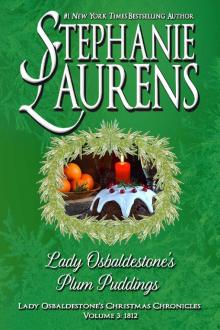 Lady Osbaldestone’s Plum Puddings: Lady Osbaldestone’s Christmas Chronicles Volume 3
Lady Osbaldestone’s Plum Puddings: Lady Osbaldestone’s Christmas Chronicles Volume 3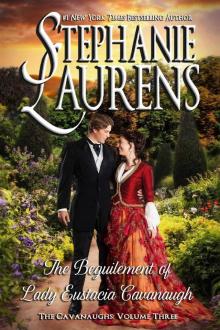 The Beguilement of Lady Eustacia Cavanagh: The Cavanaughs Volume 3
The Beguilement of Lady Eustacia Cavanagh: The Cavanaughs Volume 3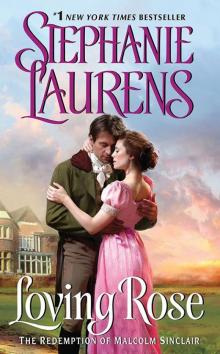 Loving Rose: The Redemption of Malcolm Sinclair (Casebook of Barnaby Adair)
Loving Rose: The Redemption of Malcolm Sinclair (Casebook of Barnaby Adair) By Winter's Light
By Winter's Light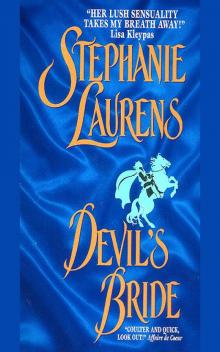 Devil's Bride
Devil's Bride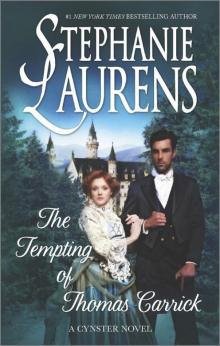 The Tempting of Thomas Carrick
The Tempting of Thomas Carrick![Cynster [22.00] A Match for Marcus Cynster Read online](http://i1.bookreadfree.com/i/03/16/cynster_[22_00]_a_match_for_marcus_cynster_preview.jpg) Cynster [22.00] A Match for Marcus Cynster
Cynster [22.00] A Match for Marcus Cynster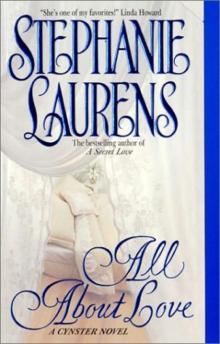 All About Love c-6
All About Love c-6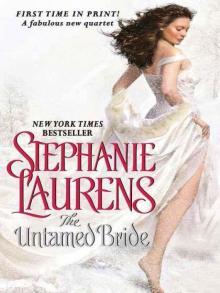 Cobra 01 The Untamed Bride
Cobra 01 The Untamed Bride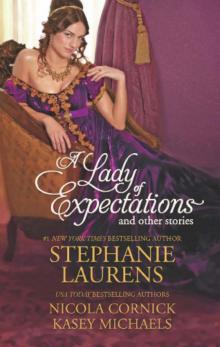 A Lady of Expectations and Other Stories
A Lady of Expectations and Other Stories By Winter's Light_A Cynster Novel
By Winter's Light_A Cynster Novel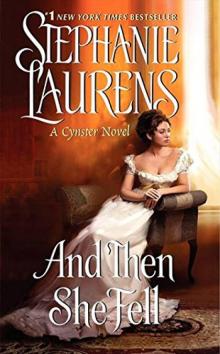 And Then She Fell
And Then She Fell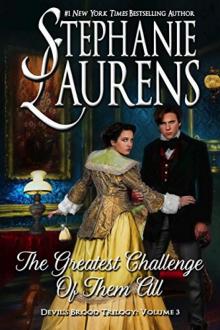 The Greatest Challenge of Them All
The Greatest Challenge of Them All The Edge of Desire
The Edge of Desire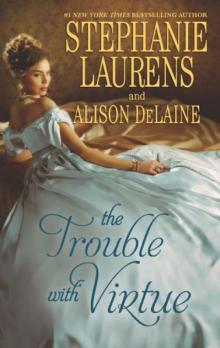 The Trouble With Virtue: A Comfortable WifeA Lady by Day
The Trouble With Virtue: A Comfortable WifeA Lady by Day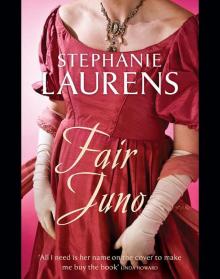 Fair Juno
Fair Juno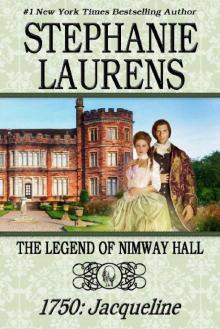 THE LEGEND OF NIMWAY HALL: 1750 - JACQUELINE
THE LEGEND OF NIMWAY HALL: 1750 - JACQUELINE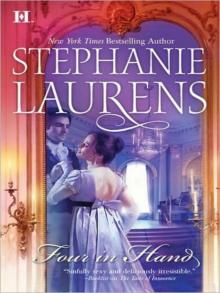 Four In Hand
Four In Hand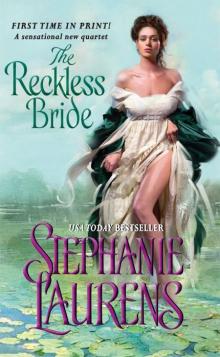 The Reckless Bride
The Reckless Bride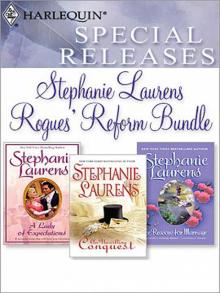 Stephanie Laurens Rogues' Reform Bundle
Stephanie Laurens Rogues' Reform Bundle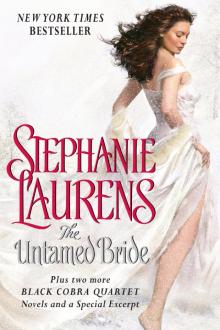 The Untamed Bride Plus Black Cobra 02-03 and Special Excerpt
The Untamed Bride Plus Black Cobra 02-03 and Special Excerpt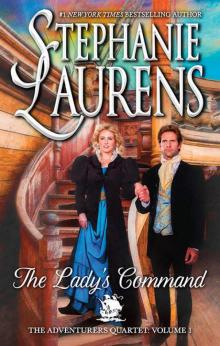 The Lady's Command (Adventurers Quartet #1)
The Lady's Command (Adventurers Quartet #1)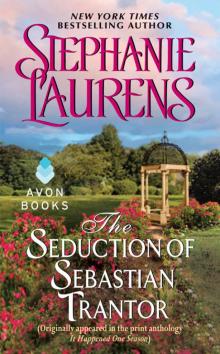 The Seduction of Sebastian Trantor
The Seduction of Sebastian Trantor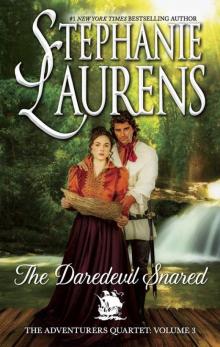 The Daredevil Snared (The Adventurers Quartet Book 3)
The Daredevil Snared (The Adventurers Quartet Book 3)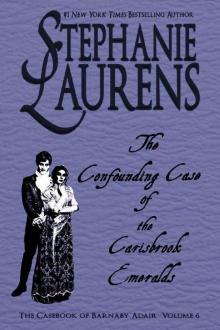 The Confounding Case Of The Carisbrook Emeralds (The Casebook of Barnaby Adair 6)
The Confounding Case Of The Carisbrook Emeralds (The Casebook of Barnaby Adair 6) Lord of the Privateers (The Adventurers Quartet)
Lord of the Privateers (The Adventurers Quartet)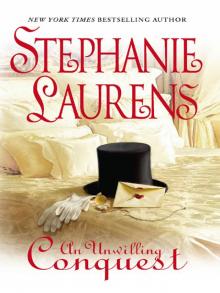 An Unwilling Conquest
An Unwilling Conquest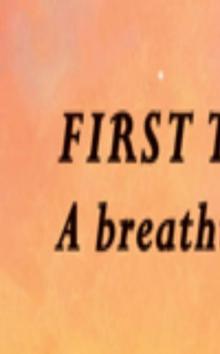 Brazen Bride
Brazen Bride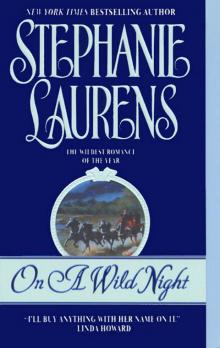 On a Wild Night
On a Wild Night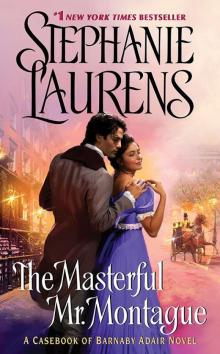 The Masterful Mr. Montague: A Casebook of Barnaby Adair Novel
The Masterful Mr. Montague: A Casebook of Barnaby Adair Novel Lord of the Privateers
Lord of the Privateers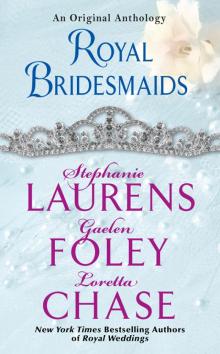 Royal Bridesmaids
Royal Bridesmaids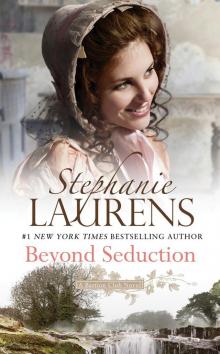 Beyond Seduction
Beyond Seduction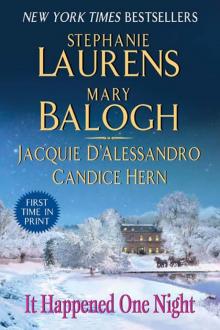 It Happened One Night
It Happened One Night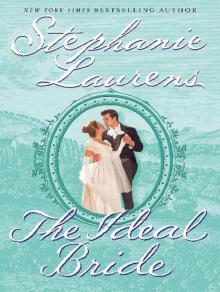 The Ideal Bride
The Ideal Bride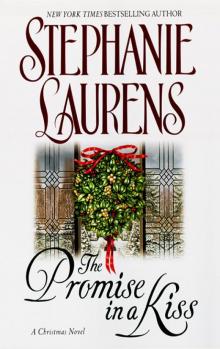 The Promise in a Kiss
The Promise in a Kiss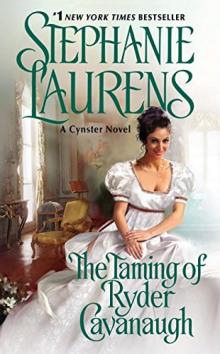 The Taming of Ryder Cavanaugh
The Taming of Ryder Cavanaugh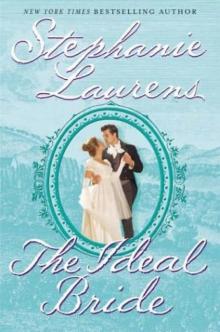 The Ideal Bride c-12
The Ideal Bride c-12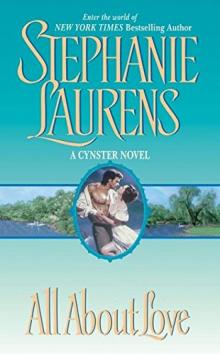 All About Love
All About Love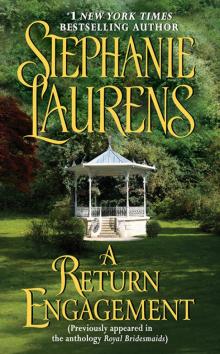 A Return Engagement
A Return Engagement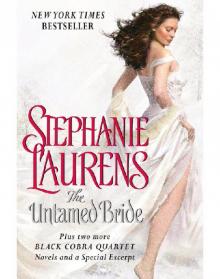 The Untamed Bride Plus Two Full Novels and Bonus Material
The Untamed Bride Plus Two Full Novels and Bonus Material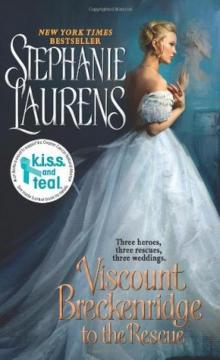 Viscount Breckenridge to the Rescue
Viscount Breckenridge to the Rescue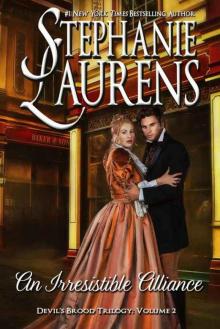 An Irresistible Alliance (Cynsters Next Generation Novels Book 5)
An Irresistible Alliance (Cynsters Next Generation Novels Book 5)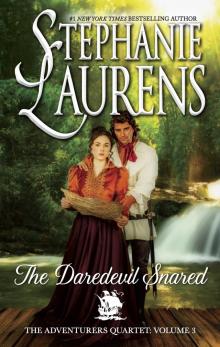 The Daredevil Snared
The Daredevil Snared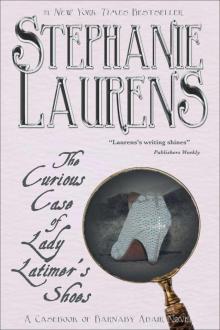 The Curious Case of Lady Latimer's Shoes: A Casebook of Barnaby Adair Novel
The Curious Case of Lady Latimer's Shoes: A Casebook of Barnaby Adair Novel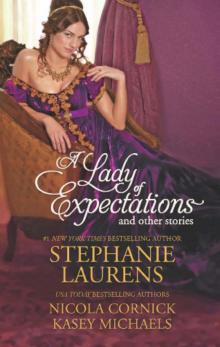 A Lady of Expectations and Other Stories: A Lady of ExpectationsThe Secrets of a CourtesanHow to Woo a Spinster
A Lady of Expectations and Other Stories: A Lady of ExpectationsThe Secrets of a CourtesanHow to Woo a Spinster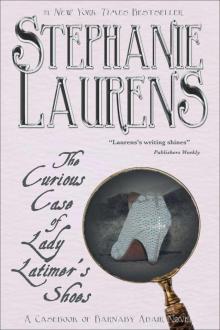 The Curious Case of Lady Latimer's Shoes: A Casebook of Barnaby Adair Novel (The Casebook of Barnaby Adair)
The Curious Case of Lady Latimer's Shoes: A Casebook of Barnaby Adair Novel (The Casebook of Barnaby Adair)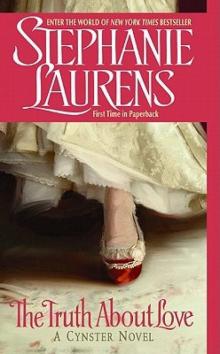 The Truth About Love
The Truth About Love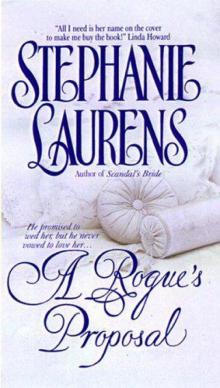 A Rogue's Proposal
A Rogue's Proposal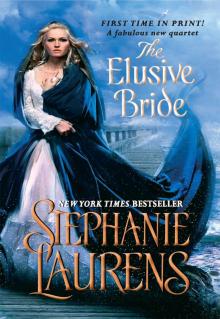 The Elusive Bride
The Elusive Bride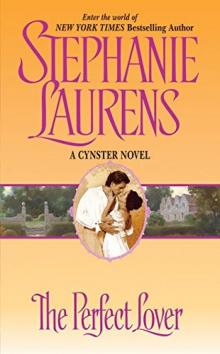 The Perfect Lover
The Perfect Lover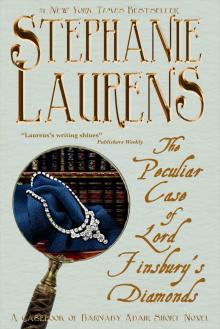 The Peculiar Case of Lord Finsbury's Diamonds: A Casebook of Barnaby Adair Short Novel
The Peculiar Case of Lord Finsbury's Diamonds: A Casebook of Barnaby Adair Short Novel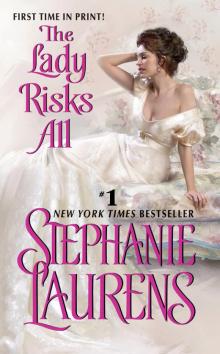 The Lady Risks All
The Lady Risks All The Murder at Mandeville Hall: The Casebook of Barnaby Adair: Volume 7
The Murder at Mandeville Hall: The Casebook of Barnaby Adair: Volume 7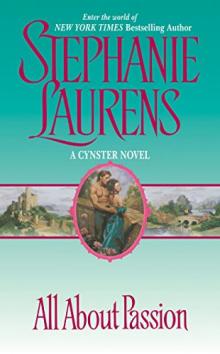 All About Passion
All About Passion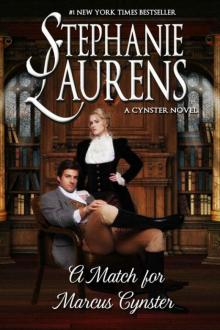 A Match for Marcus Cynster
A Match for Marcus Cynster By Winter's Light: A Cynster Novel (Cynster Special Book 2)
By Winter's Light: A Cynster Novel (Cynster Special Book 2)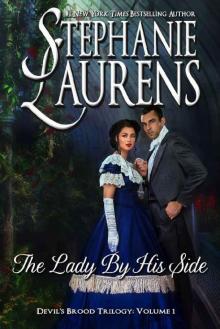 The Lady By His Side
The Lady By His Side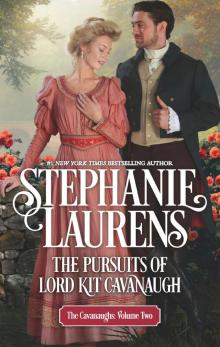 The Pursuits of Lord Kit Cavanaugh
The Pursuits of Lord Kit Cavanaugh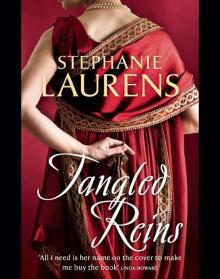 Tangled Reins
Tangled Reins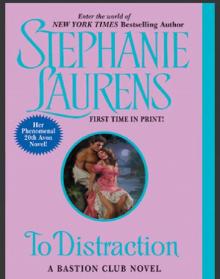 To Distraction
To Distraction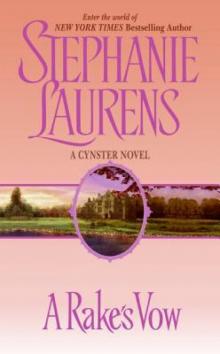 A Rake's Vow
A Rake's Vow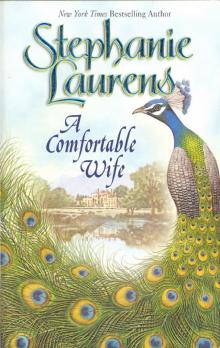 A Comfortable Wife
A Comfortable Wife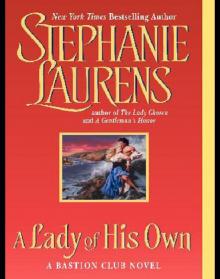 A Lady of His Own bc-3
A Lady of His Own bc-3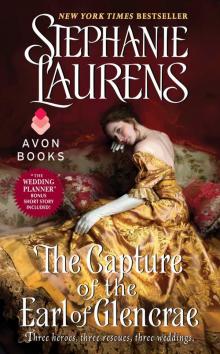 The Capture of the Earl of Glencrae
The Capture of the Earl of Glencrae Scandals Bride c-3
Scandals Bride c-3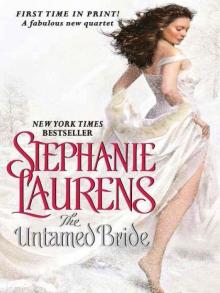 Untamed Bride
Untamed Bride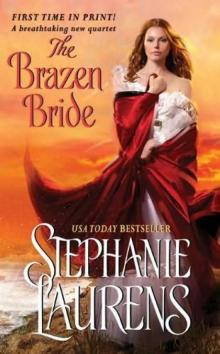 The Brazen Bride
The Brazen Bride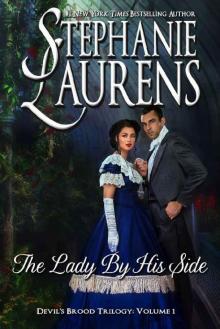 The Lady By His Side (Cynsters Next Generation Novels Book 4)
The Lady By His Side (Cynsters Next Generation Novels Book 4)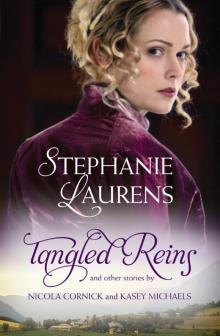 Tangled Reins and Other Stories
Tangled Reins and Other Stories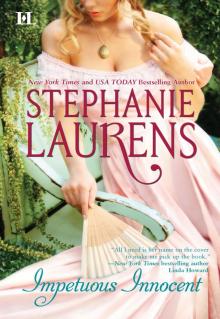 Impetuous Innocent
Impetuous Innocent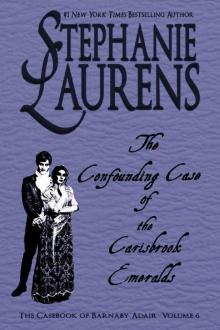 The Confounding Case Of The Carisbrook Emeralds
The Confounding Case Of The Carisbrook Emeralds Stephanie Laurens - B 6 Beyond Seduction
Stephanie Laurens - B 6 Beyond Seduction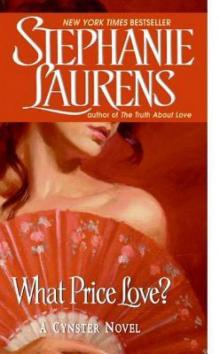 What Price Love?
What Price Love?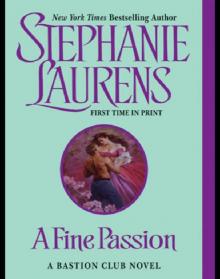 A Fine Passion
A Fine Passion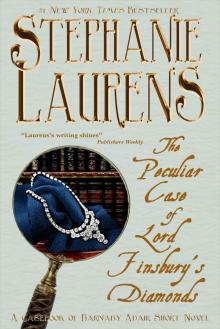 The Peculiar Case of Lord Finsbury's Diamonds: A Casebook of Barnaby Adair Short Novel (The Casebook of Barnaby Adair)
The Peculiar Case of Lord Finsbury's Diamonds: A Casebook of Barnaby Adair Short Novel (The Casebook of Barnaby Adair)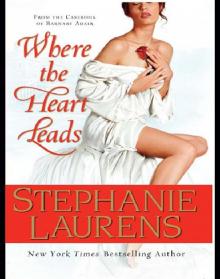 Where the Heart Leads
Where the Heart Leads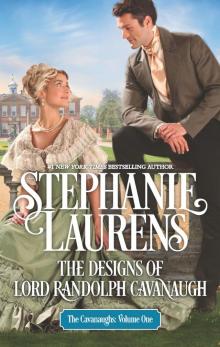 The Designs of Lord Randolph Cavanaugh
The Designs of Lord Randolph Cavanaugh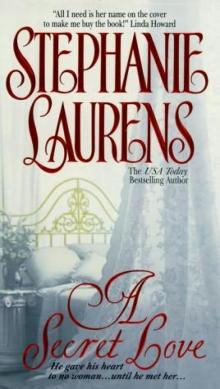 A Secret Love c-5
A Secret Love c-5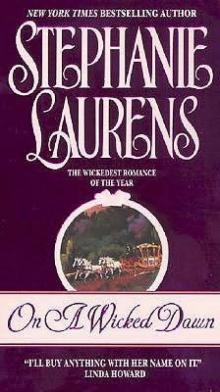 On a Wicked Dawn c-10
On a Wicked Dawn c-10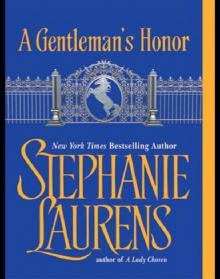 A Gentleman's Honor
A Gentleman's Honor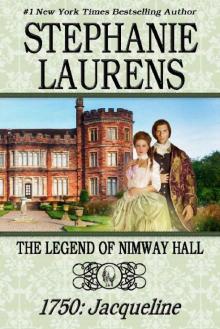 THE LEGEND OF NIMWAY HALL_1750_JACQUELINE
THE LEGEND OF NIMWAY HALL_1750_JACQUELINE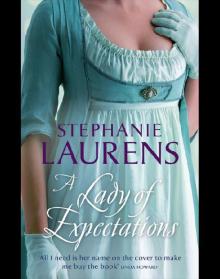 A Lady of Expectations
A Lady of Expectations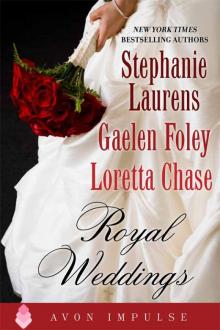 Royal Weddings: An Original Anthology
Royal Weddings: An Original Anthology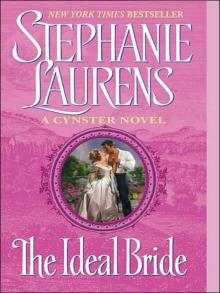 The Ideal Bride (Cynster Novels)
The Ideal Bride (Cynster Novels)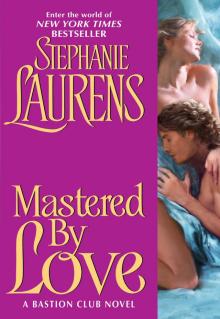 Mastered by Love
Mastered by Love A Buccaneer at Heart
A Buccaneer at Heart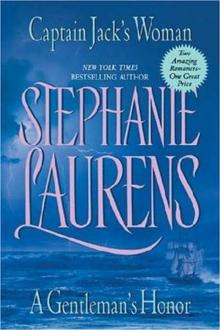 Captain Jack’s Woman / A Gentleman's Honor
Captain Jack’s Woman / A Gentleman's Honor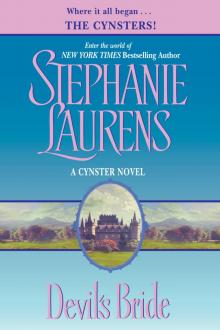 Devil's Bride with Bonus Material
Devil's Bride with Bonus Material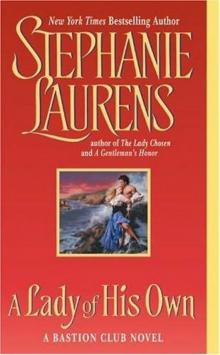 A Lady of His Own
A Lady of His Own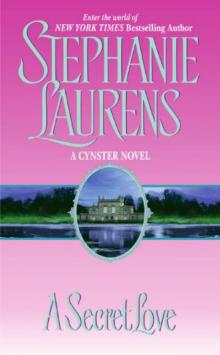 A Secret Love
A Secret Love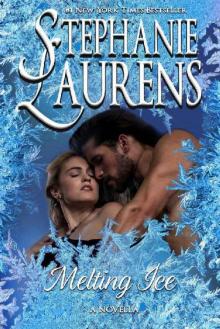 Melting Ice
Melting Ice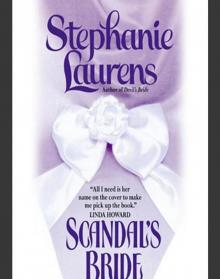 Scandal's Bride
Scandal's Bride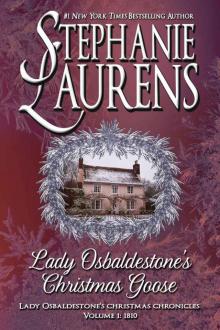 Lady Osbaldestone’s Christmas Goose
Lady Osbaldestone’s Christmas Goose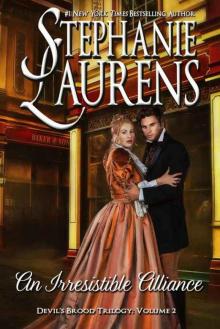 An Irresistible Alliance
An Irresistible Alliance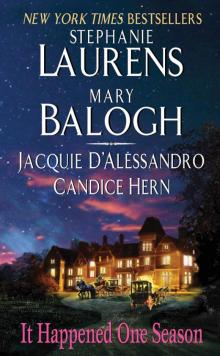 It Happened One Season
It Happened One Season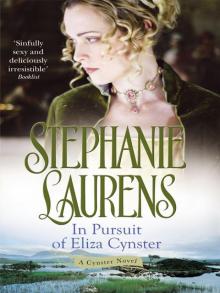 In Pursuit Of Eliza Cynster
In Pursuit Of Eliza Cynster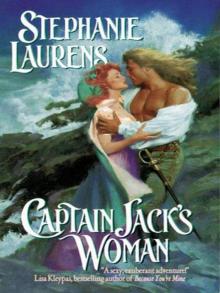 Captain Jack's Woman
Captain Jack's Woman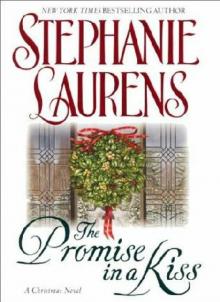 The promise in a kiss c-8
The promise in a kiss c-8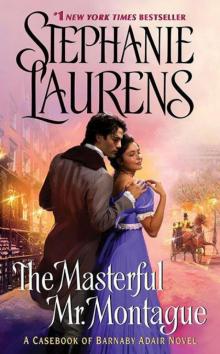 The Masterful Mr. Montague
The Masterful Mr. Montague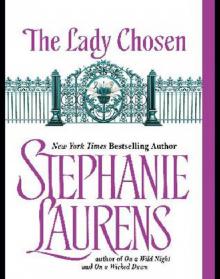 The Lady Chosen
The Lady Chosen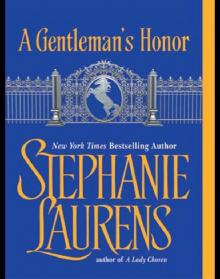 A Gentleman's Honor bc-2
A Gentleman's Honor bc-2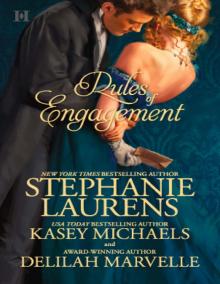 Rules of Engagement: The Reasons for MarriageThe Wedding PartyUnlaced (Lester Family)
Rules of Engagement: The Reasons for MarriageThe Wedding PartyUnlaced (Lester Family) Secrets of a Perfect Night
Secrets of a Perfect Night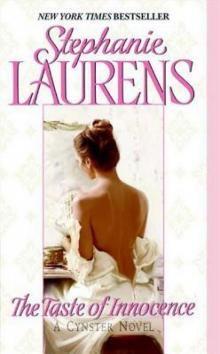 The Taste of Innocence
The Taste of Innocence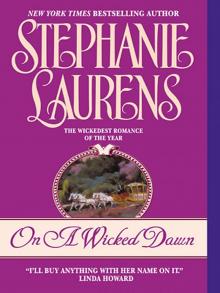 On A Wicked Dawn
On A Wicked Dawn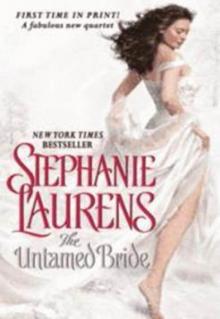 The Untamed Bride
The Untamed Bride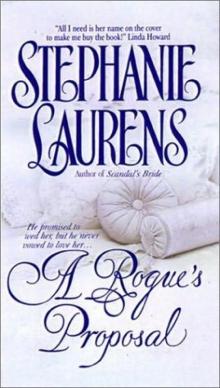 A Rogues Proposal c-4
A Rogues Proposal c-4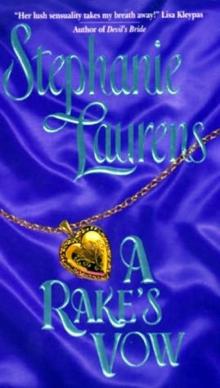 Rakes Vow c-2
Rakes Vow c-2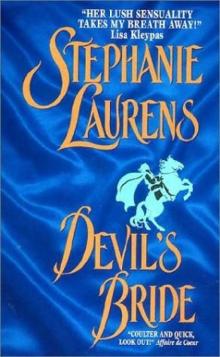 Devils Bride c-1
Devils Bride c-1 Hero, Come Back
Hero, Come Back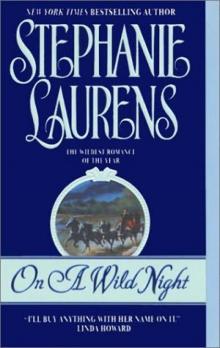 On a Wild Night c-8
On a Wild Night c-8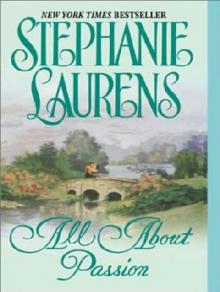 All About Passion c-7
All About Passion c-7